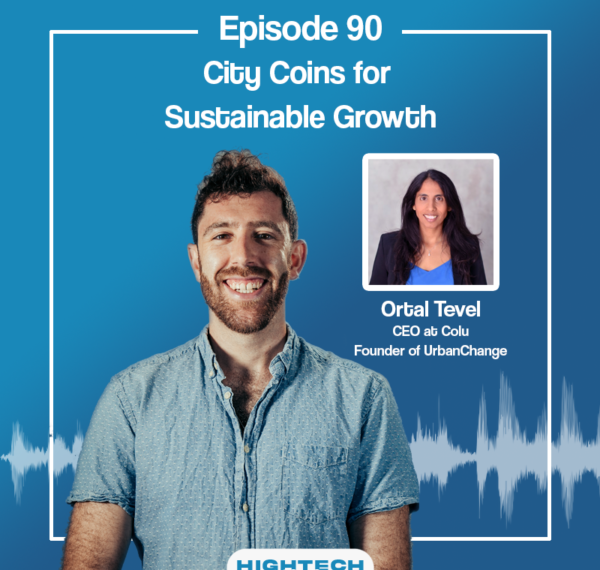The world of technology is constantly evolving, and with it, our cities and communities are changing too. One of the latest innovations in this field is the use of city coins, which engage city residents with rewards, and help cities achieve their goals, whatever that may be. In my recent interview with Ortal Tevel, CEO at Colu and founder at UrbanChange, we discussed the concept of city coins and their benefits, and we explored how these coins can incentivize civic engagement, foster a new form of localized economy, and ultimately, help create better urban spaces for all.

Listen to the Episode Now on Spotify!
Listen to the Episode Now on Apple!
What Are City Coins?
City coins are digital currencies that are designed to be used within a specific city or community. No, they are not cryptocurrencies, necessarily, but rather are often powered by mobile apps, which allow residents to earn and spend the coins on various goods and services, such as public transportation, local businesses, and community events. Colu is a leading provider of city coins, and through its white-label digital platform allows cities to create and manage their own digital currencies. While it may have moved away from the blockchain technology so often touted in digital currencies to a web2-inspired solution, Colu’s value lies in its innovative method of almost gamifying the whole “living in a community” lifestyle.
By employing a digital coin system, cities can gain better control over their local economies, promote local businesses, and encourage residents to participate in civic life. Ortal explains, “City coins are a way for people to get engaged in their local community and be part of it, and for the city to show people that they are also part of supporting the local community.” The rewards offered by city coins incentivize positive actions that align with a city’s vision and plans, transforming them into measurable actions. The result is a new form of localized economy that empowers communities and promotes sustainability.
Coins Incentivize Engagement
One of the main benefits of city coins is their ability to incentivize engagement. By offering a 1 coin to $1 value for certain actions, such as recycling, walking, volunteering, buying at local stores, or attending public meetings, city coins can encourage residents to become more involved in their communities. This, in turn, can help create a sense of belonging and pride, and foster stronger social ties between residents making their community feel more like their own.
Ortal notes that Colu worked with the local government in Akron, Ohio, in an effort to stimulate local economic activity by creating a local currency called ‘blimps’ on their platform ‘Akronite’, which incentivized residents to shop at local businesses. “The program helped the city to keep more money within the local economy,” Ortal mentions, and, overall, Akron saw an incredible jump in small business economic growth. “But every city has its unique challenges” Ortal notes and for some cities economic activity is not their primary worry.
In yet another example of how city coins can foster civic development, San Mateo county in California wanted to employ city coins as an incentive structure to encourage walking and healthy, active lifestyles. Residents were encouraged to get outside and walk around, thereby earning coins to spend at local businesses. The town saw not only an increase in its residents’ activity levels but more focus on the development of the entire community.
A New Form of Localized Economy
With this understanding of city coins comes the realization of their potential to develop a new form of localized economy. Cities not only have a way to incentivize residents and promote new civic campaigns, but they can also digitally monitor their campaigns’ successes. With key measurements that are made transparent to the general population, cities can breed a new sense of belonging and civic participation often lost in our overly digitized world.
Moreover, by promoting local businesses and encouraging residents to spend their coins specifically within the community, cities can help create a circular economy that benefits everyone. As Ortal shows, “the idea is to use city coins to create a closed loop, where the coins are earned and spent within the city, and the local economy is strengthened as a result.” In the end, the economy then can depend more on itself.
The use of city coins is a promising new trend in the world of technology and urban development. Companies like Colu and UrbanChange are at the forefront of this movement, and their platforms are helping to transform the way we think about our cities and communities. By incentivizing civic engagement, city coins are proving to be a powerful tool for creating better communal spaces for all.




















